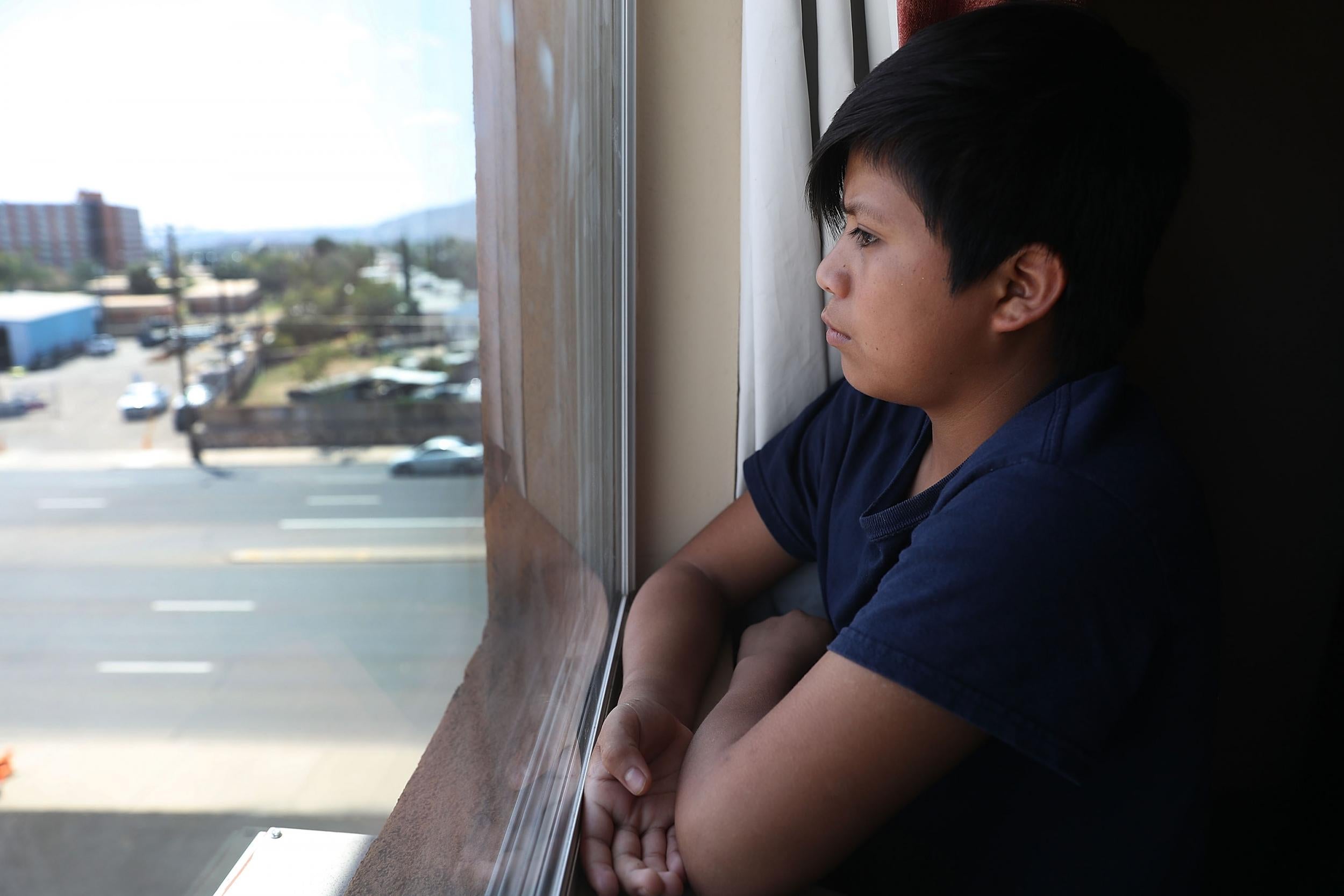Trump administration ‘washing its hands’ of deported parents of migrant children, advocates warn
Government asks ACLU to locate parents who were deported before being reunified with their children

Your support helps us to tell the story
From reproductive rights to climate change to Big Tech, The Independent is on the ground when the story is developing. Whether it's investigating the financials of Elon Musk's pro-Trump PAC or producing our latest documentary, 'The A Word', which shines a light on the American women fighting for reproductive rights, we know how important it is to parse out the facts from the messaging.
At such a critical moment in US history, we need reporters on the ground. Your donation allows us to keep sending journalists to speak to both sides of the story.
The Independent is trusted by Americans across the entire political spectrum. And unlike many other quality news outlets, we choose not to lock Americans out of our reporting and analysis with paywalls. We believe quality journalism should be available to everyone, paid for by those who can afford it.
Your support makes all the difference.The Trump administration is “washing its hands” of the migrant parents it deported after separating them from their children at the border, advocates have said.
The administration has so far reunified some 1,800 of the families it separated under Donald Trump's "zero tolerance" immigration policy, pursuant to a court order stemming from an American Civil Liberties Union (ACLU) lawsuit. But the government says more than 400 children remain in its custody, because their parents were deported before they could be reunited.
On Thursday, the administration said the ACLU – not the government – should be responsible for tracking these parents down.
“[The government] basically washed their hands of the parents who’ve already been deported,” said Jennifer Podkul, an attorney for Kids In Need of Defence (KIND), which is helping in the reunification effort.
She added: “It’s absurd to demand that a private entity that relies on donations be responsible for cleaning up the government’s mess.”
The administration said in court filings on Thursday that the ACLU should use its “considerable resources” and "network of law firms, NGOs, volunteers and others" to find the approximately 450 parents, using information from the Department of Health and Human Services (HHS).
Government lawyers said the ACLU should be responsible for asking each parent to certify that they wanted their children returned to them. Only then, the government said, would it work with foreign governments “to determine how best to complete reunifications”.
The ACLU pushed back on this plan in its own filings on Thursday. Attorneys said the Trump administration had created the family separation crisis itself, and should be the one to fix it. They added that the US government “has far more resources than any group of NGOs”.
The lawyers added: “Plaintiffs have made clear that they will do whatever they can to help locate the deported parents, but emphasise that the government must bear the ultimate burden of finding the parents.”
Advocates say many of these parents were likely deported under duress or coercion. Members of KIND and other advocacy groups said they had heard of immigration agents forcing parents to sign deportation paperwork they did not understand. In other cases, they said, parents were told they could only be reunified with their children if they agreed to leave the country.
The ACLU added that the government has refused to provide the information needed to track down the deported parents after they leave. Officials provided the ACLU with a list of addresses, lawyers said, but many of them contained only a city name. About 120 parents had no “potentially viable” address listed at all.
The ACLU said the government had access to the deported parents’ phone numbers, but did not attempt to use them before the reunification deadlines. They called on the administration to provide “as much information as possible, as quickly as possible.”
A spokesperson for US Customs and Immigration Enforcement said the agency had no comment besides the court filing.
The final decision on who is responsible for finding these parents rests with US District Court Judge Dana Sabraw, who is scheduled to hold a conference call with the two parties on Friday afternoon.
Meanwhile, KIND has launched its own initiative to aid in the reunifications, using its contacts with local civil society groups, governments, and intergovernmental organisations to help track down the deported parents. The group will provide these parents with free legal representation and mental health services, Ms Podkul said.
Join our commenting forum
Join thought-provoking conversations, follow other Independent readers and see their replies
Comments